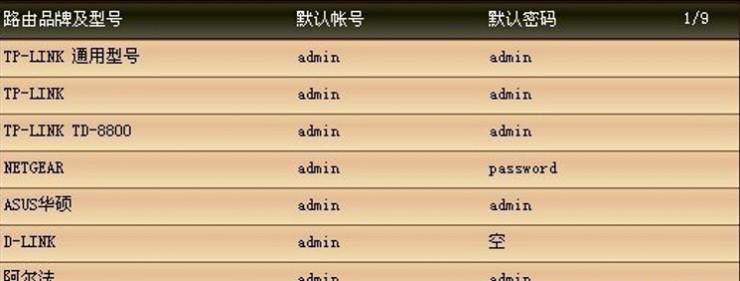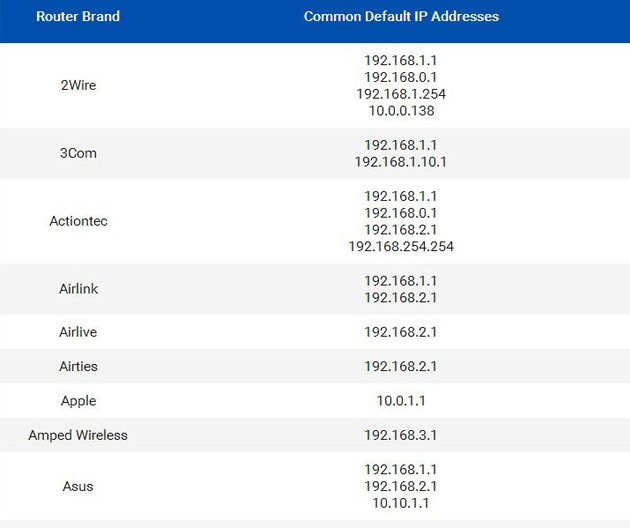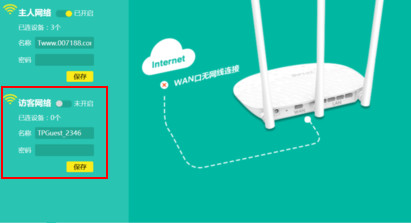From New Year to WiFi Sharing
The night before I left home, the television network in my home was abnormally poor and the picture was delivered. I opened the router management interface and discovered that there were two more wireless devices inexplicably and greedily grabbed the network traffic.
I am wondering: Last week just changed a complicated WiFi password. Why did they appear so quickly? After thinking about it, I downloaded and opened a well-known WiFi sharing software and found that there was a key icon behind my WiFi - this key means that the WiFi password has been shared.
In the next few days, I discovered that a number of relatives of WiFi can use this WiFi sharing software to connect directly. It is clear that their home WiFi password is also shared to the platform. In the end, I still found the "culprit" of the leaked WiFi password - just the nephew of junior high school. Every time he visits a relative, he calls for a WiFi password, and then the cat plays and plays mobile games in a corner. Even he himself did not expect that he is actively sharing the WiFi of others' homes.
A relative came down. When I went to the door of my relatives, I followed behind the blinds. I didn't have to ask people for the WiFi password. The little sister had already “helped me comeâ€.
Interestingly, at the time of the aunt’s family’s visit to New Year’s home, there were obviously only five or six people in the family. I opened the router management interface of her home and discovered that there were 19 wireless connection devices. I summed up the connected devices in the room. One. When I looked out the window, I found there was a vegetable market not far away - it turned out to be the case.
From WiFi share to control router
Some readers may have noticed that I easily entered my aunt's home router management interface. The reason is simple, because her home router did not change the default password, which is the second topic of this article. —— After visiting relatives and friends in a circle, I discovered that more than 80% of home routers are in a state of nakedness, some are "naked" and some are "half-naked".
The so-called "naked" refers to the use of "admin", "password", empty password and other router factory default password. "Semi-naked" refers to weak passwords such as "123456" and "12345678" that are easily cracked, or the password is the same as the WiFi password, so that I can directly take over the router of the other parent's home with skills that elementary students can master. You can easily find the default account password for various router management on the Internet.

[Intercept from the router default password Daquan]
Rising Security once issued a report that 70% of home routers lacked security protection. At that time, the results of that report were based on sample data from first-tier and second-tier cities such as Kitakami. After a round of relatives went down, I found that the security situation of routers in small cities, especially in rural areas, was even more worrying than in first and second tier cities.
For many families in small cities, it is normal to not change the router password, and the router management login address is also the default. (Generally 192.168.1.1 or 192.168.0.1), most people rarely enter their own router management address, and many people do not even know the existence of the router management interface.

[Intercept from the router management address Daquan]
Many relatives said: “When you install broadband in general, you will get it all together. If you have a problem, call us for repairs, or wait for the young people in your family to come back and do it yourself.â€
When I went to my cousin's family to pay a New Year's greeting, my sister-in-law was not willing to write homework and had been holding a mobile phone to play games. I directly found the phone of her sister from the management settings of his home router through “192.168.1.1â€. Speed ​​limit was implemented. Just a few seconds after setting up, he began to complain about a few network cards, and then reluctantly put down the phone. He thought it was normal network fluctuations, but he did not know that his router had been controlled, just as he did not know that he had leaked his relatives' WiFi password.
Later, I warned several relatives and friends that they should change their WiFi passwords and router passwords. They said generously: “It doesn’t matter if you use them for others,†but I feel very stingy. Obviously, this is not an issue of generosity or stingyness.
From controlling routers to committing crimes
The router's password is divided into two levels, Internet password and management password, it seems that most people still know this, but unfortunately, many people do not realize the importance of these two passwords, or do not pay attention to the security of the router . They do not know that hackers who have obtained these two passwords can completely control the entire home network, turn the wireless router at home into a tool to steal information, and even make the router become part of the botnet and use it to attack the Internet. other devices.
After the router is controlled, the other party can do these things in an extremely simple manner:
Speed ​​limit / limit connection
If you do not change the router password, the most direct one is that you can freely enter the router management interface, and then the other party's home device speed limit. When people complain that the home network is slowing down again, it is very likely that individuals are watching games with their home network. This person may still be a technical blind person.
Of course, if the other party is only lucky enough to be speed-reduced by the embarrassment of the Internet, and encounter people who are sceptical, insecure router settings will open the door to attackers.
Phishing
For example, the router has a DNS setting. Under normal circumstances, the DNS server will resolve the user's network domain name to the correct server. The attacker can redirect the user to the phishing website to implement network fraud by modifying the DNS settings. The degree of danger is no different from those who lead the way for the blind, intentionally leading it to the abyss.

Traffic sniffing/hijacking
Through the commonly used traffic sniffing tool, the attacker can intercept all the traffic that passes through the router. Your mobile phone, home TV, network set-top box, smart device, etc. all have network connection through the router. There are various privacy in your traffic. The attacker It's easy to black out your account on the Internet.
Prior to this, some research institutes broke out of many mobile phone software security threats, some of the communication traffic does not carry out SSL encryption, which allows attackers to take advantage of, and according to this site learned that the vast majority of mobile phone anti-virus software is not like computers The anti-virus software in the same has the function of preventing LAN sniffing, and browsing websites is not as clear as the computer shows the security of the website, so that the communication data on the mobile device can easily be crawled.
In short, the traffic of all networked devices in the home passes through the router. In theory, controlling the router is equivalent to controlling all network traffic. The attack is still a few kinds of attack tactics, the safety reminder on the router is also stereotyped, so that everyone is numb, and so there has been no loss for many years, it also closed his eyes.
All of this article no longer mentions security protection methods. Those who do not care about the security of their routers are not helpful. Those who are concerned about network security will naturally modify their WiFi passwords regularly, use WPA/WPA2 high-level encryption methods, use complex WiFi passwords, and are not at home. Use WiFi sharing software and more.
However, the editor of this site still wants to emphasize one point: The relatives and friends who come out during the Spring Festival make the WiFi password of the family frequently exposed. Once someone has a WiFi sharing software in your mobile phone, your home WiFi password may be “actively shared†to the Internet. Therefore, the editor of this site is still recommended to change the WiFi password after the festive holidays visited by relatives and friends.
If the router has a "guest network" feature, you may wish to set up a separate WiFi network for visiting relatives and friends, and then close the guest network.

[A brand router guest WiFi interface]
Although the WiFi password sharing itself is a "people for me, I am for everyone" thing, but the premise is based on active sharing, their own WiFi password "proactively shared" is not a good thing.
Shenzhen Jiesai Electric Co.,Ltd , https://www.gootuenergy.com